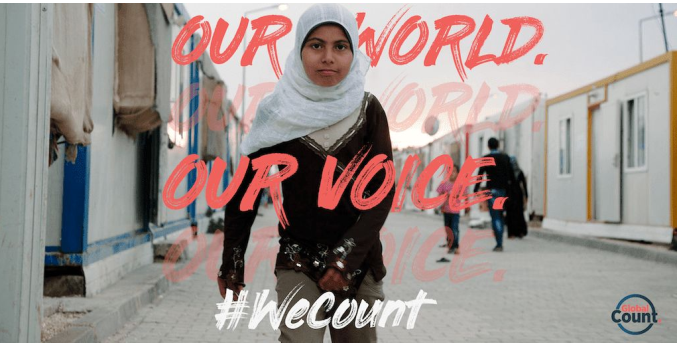Women are telling the world what they want
A survey to hear from women and gender-diverse people about barriers to their progress has reached 135 countries this February. Some 393 new entries from Nigeria to the survey pushed the survey’s reach to 135 countries, including some hard-to-reach communities. But the highest polling turnout was in Russia, where in the 24 hours that followed […]

A survey to hear from women and gender-diverse people about barriers to their progress has reached 135 countries this February.
Some 393 new entries from Nigeria to the survey pushed the survey’s reach to 135 countries, including some hard-to-reach communities.
But the highest polling turnout was in Russia, where in the 24 hours that followed the Alexei Navalny protests last weekend, over 2,600 women and gender-diverse people were counted.
The ongoing project, Global Count, is the fifth annual mobilisation event from Women’s March Global, the leading women’s human rights organisation formed on the back of the protests that took place globally four years ago following Donald Trump’s inauguration.
These figures come as Women’s March Global gets set to organise around World Day of Social Justice on February 20.
Polling will continue through International Women’s Day.
The ‘Global Count’ directly addresses data scarcity around women’s rights and the urgent need to better map the critical issues facing women and gender-diverse people across the globe.
The results will put the power back in the hands of grassroots movements to breathe life into the urgent asks they need to make of governments, funders, and the international development sector at large.
Counting global and feminists
The Global Count is not for women only.
On 21 January 2017 millions of women and allies around the world, many who would never before have called themselves feminists or women’s human rights defenders, took to the streets to make themselves seen and heard.
The top-10 performing countries so far have been:
- Russian Federation: 2,666
- Zambia: 848
- United States of America: 819
- Cameroon: 677
- Switzerland: 647
- Kenya: 470
- Uganda: 410
- Nigeria: 393
- Botswana: 327
- Zimbabwe: 280
Global march
Women’s March Global’s mission is to mobilise and assemble the most impactful actions to defend women’s human rights globally.
Women’s March Global’s vision is a world where all people acknowledge that our freedom is dependent on one another, and we work together to achieve a just, equitable, and dignified life for all.
The survey begins with questions about barriers to women and girls’ empowerment in specific regions.
It asks about issues most critical to pollsters as “a person” and then as “a community”
At the end of the poll, the ‘Global Count’ asks women to dream: “What does progress for women’s human rights look like for you in 10 years?”.
One respondent writes: “The future is bright. Women are more powerful than before. We are slowly gaining our voices and soon we will be heard. In 10 years, the world will accept us as a gender that belongs here to be seen, heard and respected. By then human rights will be a common norm for all.”
The poll is being distributed by SurveyMonkey and Facebook.
“We’re so excited to have heard from women and gender-diverse people from over 130 countries, with the data growing every day,” Betsy Scolnik, Board Chair of Women’s March Global, said.
“A poll of this breadth and scope has never been done before and the more people we hear from, the stronger our evidence is for supporting women and gender-diverse people worldwide to an equitable and fairer future.
“As we mark World Day of Social Justice and look at how we can create a more equitable future for all, data from the Global Count can help us understand what women and gender-diverse people want and to help direct funds and programmes to help do this.”
